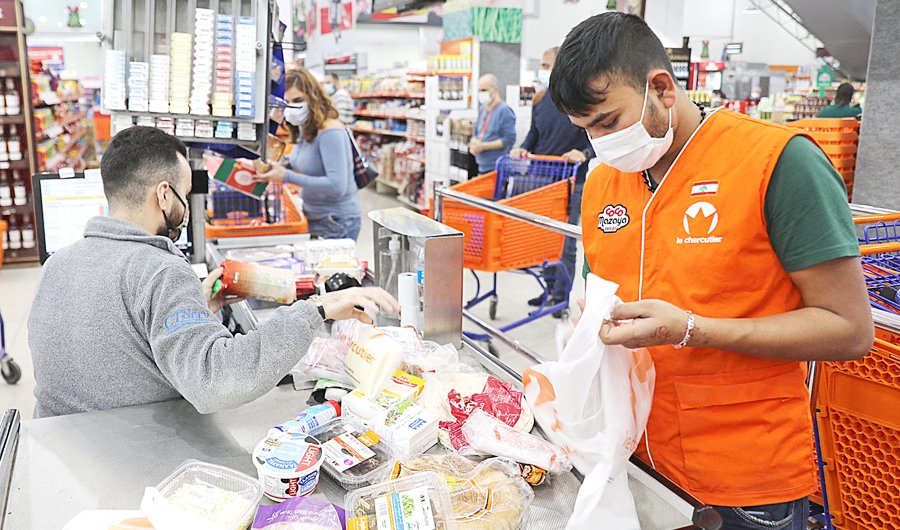Lebanon – Mesrena Elyoum

Food prices in Lebanon have risen by 700 per cent over the past two years, and most importantly, the increase has accelerated in recent weeks.
Shopping malls and stores that would normally be bustling with Eid al-Adha celebrations have become empty and stagnant this week as Lebanon’s middle class can no longer go shopping due to the massive increase in prices.
All this is amid the country’s inability to form a government while Lebanon teeters on the brink of social and economic collapse.
While a report at the American University of Beirut revealed staggering financial shortcomings, the report concluded that Lebanon could turn into “the Venezuela of the Mediterranean” and predicted that the majority of Lebanese would struggle to secure their minimum needs without the aid of aid institutions.
The accelerated and weekly increase in basic food prices is an indication that the country is “sliding into hyperinflation,” the report said.
She said the price of a basket of basic foodstuffs had risen by more than 50 per cent in less than a month, while clothes had become somewhat of a luxury.
Families complained that they were unable to buy new clothes for their children on Eid al-Adha.
One of the mothers said: The pants I used to buy for 30,000 pounds are now sold for 400,000 pounds.
“We were expecting to see more customers on Eid al-Adha, but people’s purchasing power has declined,” said Therese, a Beirut bar owner.
“The Lebanese ex-pats who came to Lebanon helped revive tourism a bit, but we fear what will happen once they leave.”
The report said that the prices of basic foodstuffs “increased significantly in the first half of July”, according to the price lists of the Lebanese Ministry of Economy and the price cycles organized by the observatory’s researchers regularly.
According to the observatory, “the prices of basic foodstuffs, including vegetables, grains, dairy products, beef, eggs and oil, have risen by more than 700 per cent since July 2019, before the financial and economic collapse.”
The report stated that the price of local bread, which is supposed to be supported by imports of wheat and flour at the official exchange rate, has risen by 233 per cent since May 2020.
Based on food prices in the first half of July, a family of five spent more than 3.5 million pounds on food per month.
This number does not take into account the additional costs of water, electricity or natural gas.
“According to these prices, the family budget for food is about five times the minimum wage, which is 675,000 liras,” the report said.
The observatory linked food price inflation to the devaluation of the Lebanese pound against the US dollar, as the Lebanese currency lost more than 90 per cent of its value in the past two years.
According to the report, “inflation is expected to continue with the expected additional decline in the value of the Lebanese pound in the coming months.”
Lebanon’s fate is still unknown amid the collapse of state institutions.
The country’s politicians have failed to form a government, nearly a year after Hassan Diab’s government resigned following the catastrophic Beirut bombing on August 4, 2020, which killed 211 people and injured more than 6,000.
Nine months after his appointment as prime minister, Saad Hariri declared his inability to form a government on July 15 and resigned. Where he failed to reach an agreement with Lebanese President Michel Aoun on the formation of a second.
Parliamentary consultations, aimed at appointing a new Sunni figure to form the government, are scheduled to be held, despite the Sunnis’ dissatisfaction with the way the Lebanese president and his party deal with the prime minister’s constitutional powers.

